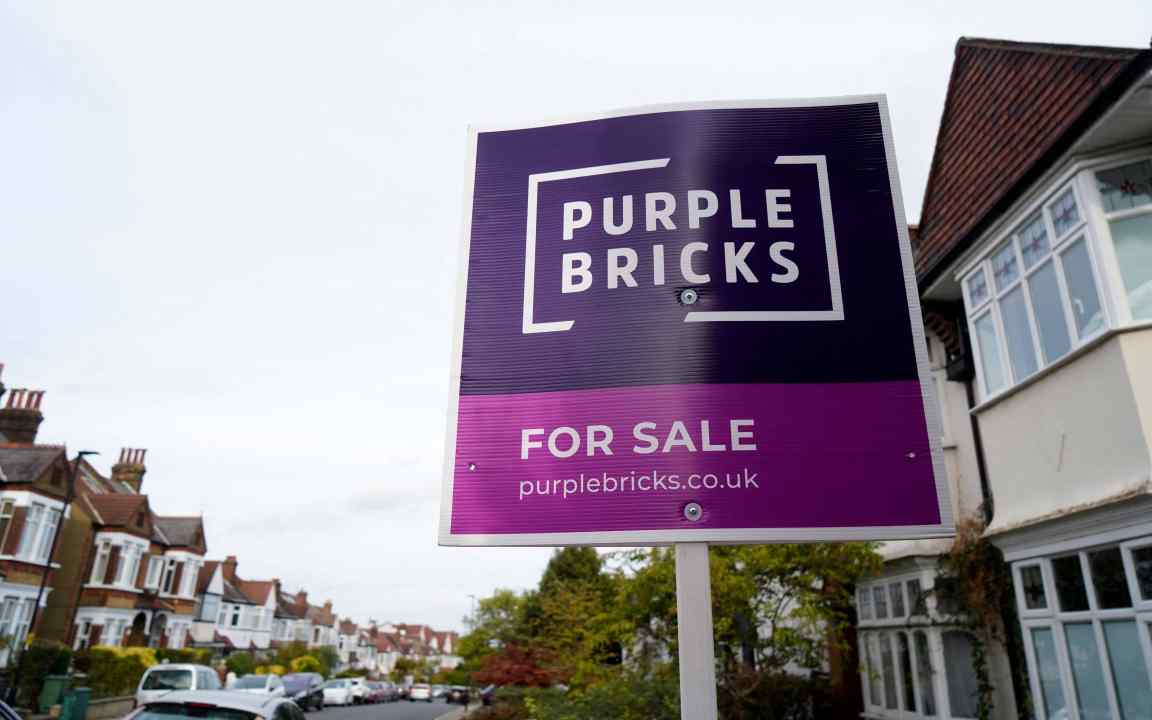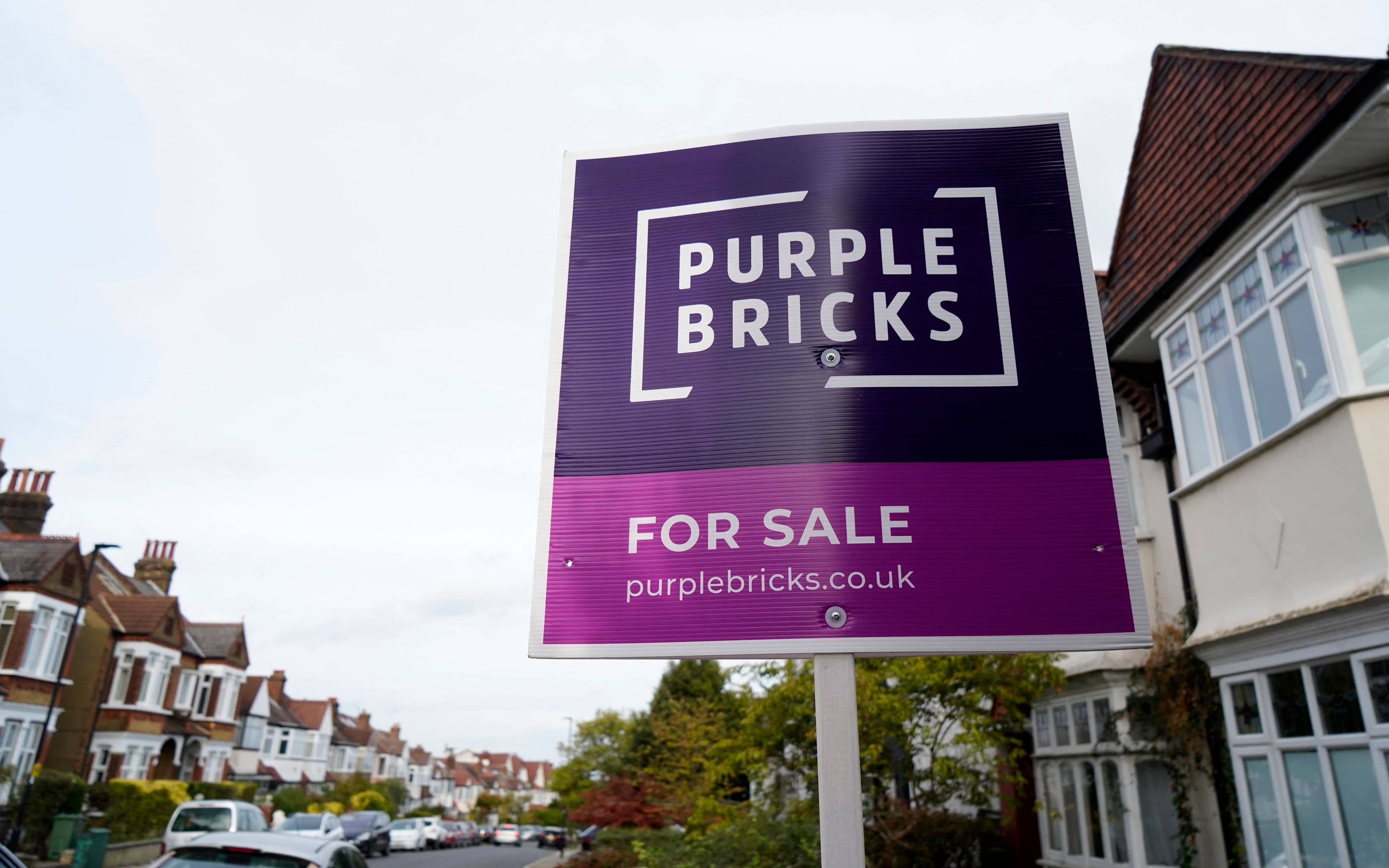Higher interest rates are making borrowing less affordable, so the average buyer has less to spend on a new property. Halifax found that the house price reduction has already begun, with a 0.1 per cent drop last month. Falling house prices can be a harbinger of economic doom – this kind of decline usually signals the imminent start of a recession.
Many will treat lower house prices as a tragedy. Oxford Economics has described the current predicament as ‘the most worrying housing market outlook’ since just before the 2008 financial crash. Homeowners will see their wealth shrink, at least on paper. Recent buyers with loans larger than the value of their property could end up in negative equity.
But let’s look at this with some perspective. Oxford Economics is forecasting house price falls of around 13 per cent across next year and the year after, taking the price of average properties to levels not seen since… March last year. House prices would still sit around seven or eight times higher than median earnings.
In other ways, a fall in house prices would not be such a bad thing. When buyers assume housing is a bet that can only pay off, it drives prices even higher. Lower house prices could reduce bubbles in future by making buyers more cautious when purchasing. It’s notable that YouGov has consistently found around half of Britons want house prices to go down, while just 5 per cent want them to continue rising.
It is reductive to think a fall in house prices will solve deep-seated issues
It’s also unhelpful, from a personal perspective and for the broader economy, for so much wealth to be locked up in property; it would be much better if we were investing savings into productive capital to help grow the economy, rather than in stagnant property.
Rising house prices have also driven serious wealth inequality, particularly between young and old. The former were lucky enough to be born early enough to afford a decent property on an average salary. The latter are deeply frustrated by the difficulty of achieving the security of homeownership available to previous generations.
This housing dynamic raises issues for the Conservative party. On one hand, homeowners vote in large numbers for Conservatives and exercise political power to block developments in their local area. On the other hand, conservatism offers little for younger generations who don’t own much, delay starting families, and (understandably) see fundamental unfairness in the system. This creates a long-term electoral challenge.
But it is reductive to think that a fall in house prices will solve these issues. A drop in property prices driven by higher interest rates do not make houses more affordable. And just because buyers are paying less to purchase a home, does not equate to increased availability of housing. Higher interest rates just mean buyers will be approved for smaller loans, and thus pay less, but end up with similar repayments. But in reality, buyers are paying more to the bank less to the previous owners.
Nor are lower house prices likely to fix the rental market. A recent study from rental platform Ocasa suggests the number of properties available for rent have nosedived by 40 per cent over the past three years. This reduction in supply, probably driven by landlords selling up in fear of proposed stricter regulations, helps explain the astronomical rent increases being experienced in British cities over recent months. There’s a further risk that higher mortgage repayments force landlords to increase rents or sell their properties, meaning a further reduction in rental properties – and therefore higher rents.
The only meaningful way to make housing more affordable is to build enough homes to satisfy our needs – something the UK has failed to do for decades. There is further bad news on this front. Robert Colvile from the Centre for Policy Studies highlights how the UK’s five largest housebuilders have lost half their value this year on the stock market. This is driven by the expectation that they will build far fewer homes because of higher input costs and lower potential returns. It’s rational for property developers to hold on to empty plots of land until the market begins to bounce back.
So, the government is facing another big headache. Not only will existing homeowners become frustrated with the declining value of their properties, but there will be fewer new homeowners and less economic activity in construction.
The best the government can do is to implement some (much-needed) supply-side reforms to the planning system: this will help to enable enough building work to keep house prices from reaching credit-fuelled astronomical highs in future. It would also bring about the end of the boom-bust model housing market model.
One partial answer to the current predicament lies in ‘street votes’ – enabling smaller communities to agree to gentle densification of their blocks – an idea the government is intending to implement. This would come with the added advantage of creating sites for the smaller housebuilders who are most likely to struggle during this current downturn.
If house prices only decline because of higher interest rates, that’s a bad thing. But if increasing the availability of homes drives down the value of existing homes, it can only be a good thing.







Comments